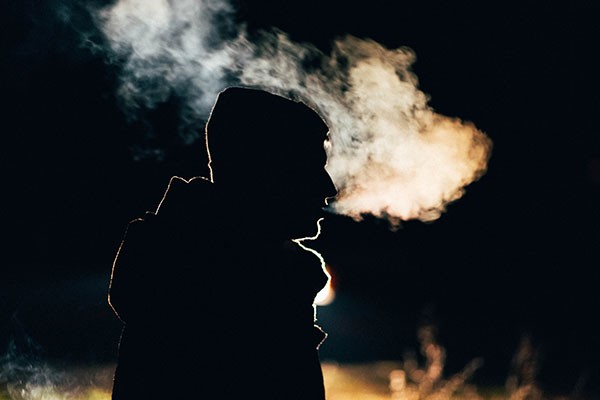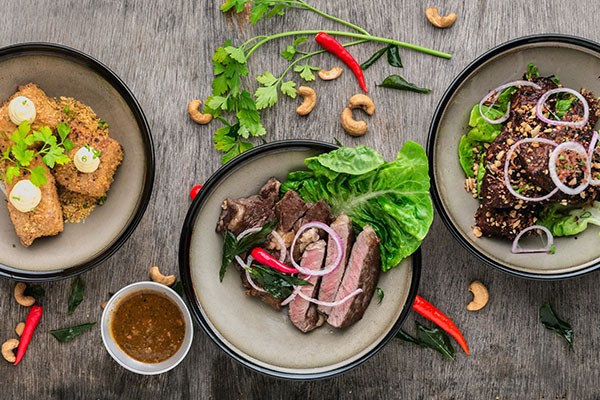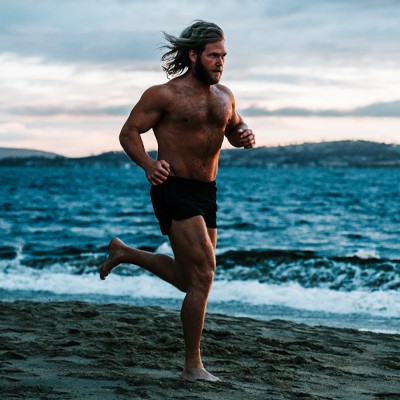Do We Burn More Calories in the Cold?

Why do we eat more when it’s cold?
Call it “comfort food”, but we can burn more calories in the cold because it stimulates appetite. But interestingly, not everyone always eats more in the cold!
And just why the results are different is what scientists are trying to discover.
We might burn more calories exercising in the cold which makes us eat more – research finds the thermic effect of exercise seems to be somewhat higher in colder regions due to the hobbling effect of clothing. What this means is that it’s harder for us to walk in more layers, and we burn more calories as a result.
The research also found appetite is simply stimulated upon arrival in very cold regions, which results in a higher calorie intake and body weight gain.
The opposite – funnily enough – is seen in warmer climates; energy intake is less not only because of reduced physical activity but also because of some influence of climate on appetite.
But what’s going on in the colder climates? Why do some people gain more weight there?
Scientists point to the following:
- Palatability of food
- Cold temperature
- Season of the year
- Emotional factors (e.g., loneliness), and
- Changes in physical activity habits
Scientists say the increases in body weight seen in cold regions is a normal psychophysiological response to a specific environment – comparable to what happens in nature during autumn; wild animals start eating more to accumulate body fat reserves as a source of energy, and additional insulation for the winter.
Scientists stress this might not be the same for humans but point to it as a likely scenario.
Humans in the winter
This study of 12 French male soldiers who spent 14 days in cold Greenland was given easy-to-eat palatable foods in excess.
In the end, their daily energy expenditure stayed relatively constant throughout the expedition.
However, their energy intake was 17% higher during the Day 8 to Day 14 period compared with the Day 1-Day 7 periods, leading to a neutral energy balance.
Ultimately, the study showed energy intake can increase during a 14-day expedition in the cold.
But the researchers say energy compensation was likely because they were given easy-to-eat palatable and familiar foods. Again, we have nothing definitive, but the findings are interesting, nonetheless.
Other research finds that for humans to maintain a stable core temperature in cold environments, an increase in energy expenditure is required. That’s another reason we may move more and subsequently want to eat more, too.
And you don’t have to look far to see this: pay attention to people in the street when it’s cold – they have their arms folded and tend to be bouncing from foot to foot to stay warm.

Burning more calories shivering?
This brings us to the other findings: when we shiver, our muscles contract and loosen in quick succession to raise our body's core temperature.
Who needs a gym in the cold?!
And when this happens, brown fat tissues are activated and the calorie-burning process begins.
And here’s some interesting news: shivering also triggers the production of a hormone known as irisin, the same hormone produced by exercise.
The study found that participants who rested under cooling blankets experienced a 48 per cent increase in calories burned. Moreover, those who were cold enough to shiver experienced an 88 per cent increase in muscle activity, compared to the 13 percent increase of those who didn't shiver.
This is another way we might burn more calories in the cold. Although, it seems some of us eat more as a result and some don’t.
There are more factors at play, however, and this is what scientists are trying to work out to give us definitive guidelines.
Do your own experiment
When it gets colder, you can try logging your macronutrient/calorie intake in a nutrition app to see if your food intake rises.
Now, correlation doesn’t equal causation – just because it’s colder and you’re eating more doesn’t mean the weather is the reason for it. It could be other factors like stress, or a significant change in mood.

The bottom line on burning more calories in the cold
Studies seem definitive that human beings burn more calories in the cold. This can be due to the palatability of food, cold temperature, the season of the year, emotional factors (e.g., loneliness), and changes in physical activity habits.
The simple act of shivering also burns more calories. You could track your calorie intake over winter and see if you consume more, although the colder weather might not be the only reason you are (it could be stress, etc). More research is needed to see if humans as a whole eat more calories definitively when the colder weather arrives.

Dayne Hudson
Like many, Dayne was once desperate to lose weight and get into shape. But everyone he asked, everything he read, lead to the same place... nowhere.
His journey started there - researching science journals and completing a Sports Nutrition Specialist qualification so he could make weight loss easier.
References:
- Charlot K, Chapelot D, Colin P, Bourrilhon C. Daily energy balance and eating behaviour during a 14-day cold weather expedition in Greenland. Appl PhysiolNutrMetab. 2020 Sep;45(9):968-977. doi: 10.1139/apnm-2019-0677. Epub 2020 Mar 18. PMID: 32187499.
- Institute of Medicine (US) Committee on Military Nutrition Research; Marriott BM, Carlson SJ, editors. Nutritional Needs In Cold And In High-Altitude Environments: Applications for Military Personnel in Field Operations. Washington (DC): National Academies Press (US); 1996. 12, Cold Exposure, Appetite, and Energy Balance. Available from: https://www.ncbi.nlm.nih.gov/books/NBK232851/
- Langeveld M, Tan CY, Soeters MR, Virtue S, Ambler GK, Watson LP, Murgatroyd PR, Chatterjee VK, Vidal-Puig A. Mild cold effects on hunger, food intake, satiety and skin temperature in humans. Endocr Connect. 2016 Mar;5(2):65-73. doi: 10.1530/EC-16-0004. Epub 2016 Feb 10. PMID: 26864459; PMCID: PMC5002965.
- Lee P, Linderman JD, Smith S, Brychta RJ, Wang J, Idelson C, Perron RM, Werner CD, Phan GQ, Kammula US, Kebebew E, Pacak K, Chen KY, Celi FS. Irisin and FGF21 are cold-induced endocrine activators of brown fat function in humans. Cell Metab. 2014 Feb 4;19(2):302-9. doi: 10.1016/j.cmet.2013.12.017. PMID: 24506871; PMCID: PMC7647184.
- McInnis K, Haman F, Doucet É. Humans in the cold: Regulating energy balance. Obes Rev. 2020 Mar;21(3):e12978. doi: 10.1111/obr.12978. Epub 2019 Dec 21. PMID: 31863637.
- Torres SJ, Nowson CA. Relationship between stress, eating behavior, and obesity. Nutrition. 2007 Nov-Dec;23(11-12):887-94. doi: 10.1016/j.nut.2007.08.008. Epub 2007 Sep 17. PMID: 17869482.
Related Blogs

How Many Extra Calories Do We Burn on Soft Sand?
Posted by Dayne Hudson
Estimated reading time: 4 minutes

How to Calculate Calories for an Aggressive Mini Cut
Posted by Ben Disseldorp
Estimated reading time: 8 minutes

Practical Dieting for Sustainable Fat Loss Success
Posted by Bulk Nutrients
Estimated reading time: 18 minutes




























